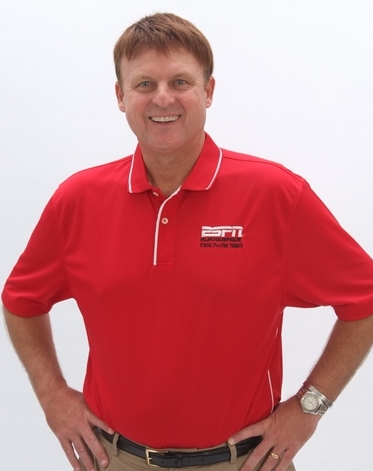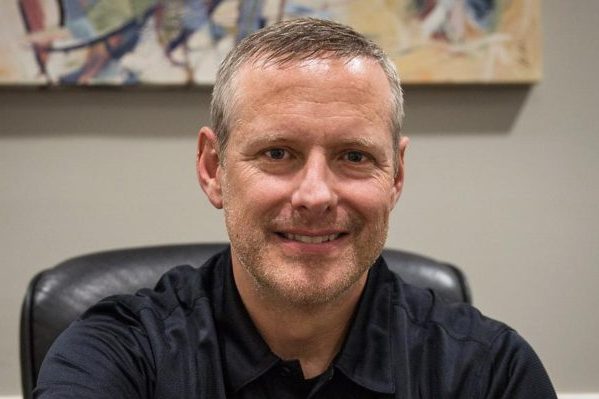What are audiences looking for in sports content? Certainly they want to know what happened in a game and what it means for the story going forward, but they want to be entertained too. It is why ESPN has brought in talent from outside of the sports world like Will Cain and Mina Kimes. It’s why local stations look at former rock and hip hop DJs to spice up their lineups.
When we talk about the most entertaining and sharpest minds in sports radio names like Colin Cowherd and Brandon Tierney are sure to pop up. Those guys are always looking for smart and unique ways to present their arguments.

Is it possible to think too much? Can a talent be too smart to succeed on sports radio?
“Yes,” says Jeff Rickard, program director of The Fan in Indianapolis, “but only if that host at his core isn’t entertaining and fun to listen to.”
That comment really emphasizes something I have believed for years. There is this old adage about radio content that every segment should either entertain, enlighten or educate. The reality is that those last two don’t really matter. You can be the smartest person in any room you walk into. No one will care if they don’t also find you engaging.
Joe O’Neill, president of 101.7 the Team in Albuquerque, isn’t afraid of hiring a guy that is too smart for sports radio.”I actually think it is an asset much more than a detriment, particularly when the talent can utilize that intellect and also be self-depricating,” he says. “I think the listener finds that quite endearing.”
Joe says he already has a high intellect host in afternoon drive. Jim Villanucci graduated from the University of Cincinnati with a degree in engineering. He spent time in the political talk format before making the switch to sports. O’Neill says that the fact that Villanucci is smart and funny is something that has helped him when telling advertisers why they should spend their money on his station.
“I go to all of the characteristics that make him who he is along with the high intellect: the sense of humor, the charisma, his understanding of pop culture. I think it blends well.”
Mike Thomas oversees ESPN 1000 as Good Karma Brands’ market manager in Chicago. He flat out refuses to believe there is any talent that is too smart for sports radio.

“You can be very cerebral, but it doesn’t mean that you’re too smart for the audience.”
In fact, during his time as program director of 98.5 the Sports Hub in Boston, Thomas says he was very rarely interested in the sports knowledge of applicants. If you wanted to be on the air, Thomas needed to hear you make him laugh and do something creative. Being smart is something he only views as an asset.
So we can agree being smart is good, and if a PD or a listener thinks the host is “too smart” what they really mean is the host is boring. What can the format do then to keep its brightest engaged and motivated? I asked Rickard, O’Neill, and Thomas if they worried that a traditional sports show would bore a host that is smart and inquisitive.
Thomas said you have to let hosts be themselves. If straight Xs and Os bore them, bring on guests and surround the host with a supporting cast versed in Xs and Os.
“Well, I think in that case, you have to look at what their interests are. If it’s not just talking straight sports, what are they into? Does this guy think a meteor is going to hit the world and end things at some point? Find out what his interests are and exploit those,” he said.
Rickard was a little less worried about strategizing around a host to keep him engaged. Being from Indianapolis, he said that the question reminded him of the way Andrew Luck walked away from the NFL.
“You have to let people have their own journey. I can’t worry about not being able to keep people if this is not what they want to be doing,” Rickard said. “All I can do is put as many tools around them as I can, make them as comfortable as I can, push them as hard as I can, and give them a really good place to work. Outside of that, I have to let them follow their heart. I am not going to be the guy that talks them out of that unless I think they are making a mistake.”

The idea that there are hosts that are too smart for sports radio didn’t come out of nowhere. Dennis Miller was supposed to be too smart for Monday Night Football. Jemele Hill and Michael Smith’s take on SportsCenter was supposed to be too smart for ESPN’s audience.
Were both of those statements true? If a sports show goes beyond highlights and dad jokes met with over-the-top fake laughter, is it too smart for the average fan to enjoy? That seems like severely underestimating our audience.
O’Neill doesn’t worry about how an audience perceives his hosts. If they keep tuning in, it means they like what they hear.
“Listeners will come to that conclusion for themselves by simply listening and that’s their choice,” he says. “I don’t think they’re coming just for the high intellect. It’s that in a combination with all of the other traits.”

Sports radio could take a lesson from professional wrestling. Even the most devoted fans of the WWE and AEW realize the outcomes are scripted and the most bitter enemies in the ring are likely best friends behind the scenes. What keeps guys that fell in love with sport at age 8 tuning in every week now that they’re in their 40s?
It’s the understanding pro wrestling has of its audience. The suspense isn’t in who will win the same way it is in the Super Bowl or the Olympics. It’s in how we will get there. It’s the moves in the ring. It’s the storyline building up to the showdown at the pay-per-view event.
Wrestling can be successful being wrestling. It just needs to embrace the basics of storytelling. Smart hosts can be smart. They just need to embrace the basics of entertaining an audience.
“I think one of the smartest people we have in media today is Bomani Jones. Bomani can sit there and lecture you about economics or any theory he has about how the world works, but he also knows how to entertain, so you take a really smart guy with a really great understanding of the world and of sports and how they interconnect and he has strong opinions about those topics,” says Rickard. “What you can see over the last four to five years is the growth. He has become so entertaining and so comfortable with himself. He’s found that sweet spot of giving people what they want but still saying what he wants to say.”

Demetri Ravanos is a columnist and features writer for Barrett Media. He is also the creator of The Sports Podcast Festival, and a previous host on the Chewing Clock and Media Noise podcasts. He occasionally fills in on stations across the Carolinas in addition to hosting Panthers and College Football podcasts. His radio resume includes stops at WAVH and WZEW in Mobile, AL, WBPT in Birmingham, AL and WBBB, WPTK and WDNC in Raleigh, NC.
You can find him on Twitter @DemetriRavanos or reach him by email at DemetriTheGreek@gmail.com.







